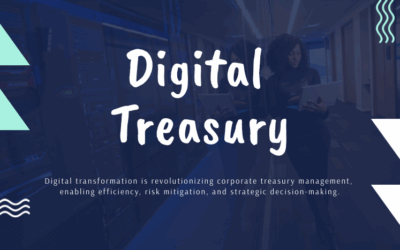What is Cloud Computing?
Cloud computing can be best understood as conducting operations over the internet, thereby removing the necessity for internal technological setups like servers and software that must be bought, operated, and maintained. Cloud-based applications are crafted for online deployment instead of the conventional software installed and run locally. These applications are multitenant, meaning a single provider offers them to multiple clients, with all users sharing the computational resources and storage overseen by the provider.
Phrases such as “Software-as-a-Service” (SaaS) and “application service provider” (ASP) frequently appear alongside discussions about cloud computing. However, they have distinct characteristics and historical contexts:
- Definition:
- SaaS: SaaS refers to a cloud-based service where instead of downloading software on your desktop PC or business network to run and update, you access an application via an internet browser. The software application could be anything from office software to unified communications, among other available business apps.
- ASP: An Application Service Provider is a business that provides computer-based services to customers over a network. The most limited sense of this business is providing access to a particular application program (such as customer relationship management) using a standard protocol such as HTTP.
- Historical Context:
- SaaS: SaaS is a modern evolution of software delivery, growing popular with the rise of cloud computing. It’s the prevalent model today for new software applications.
- ASP: The ASP model was more popular in the late 1990s and early 2000s. ASPs would host a third-party application and make it available to customers online. It was a precursor to the more comprehensive cloud-based SaaS model.
- Deployment:
- SaaS: Typically multi-tenant, where a single instance of the software runs on the cloud service provider’s infrastructure, serving multiple client organizations (tenants).
- ASP: Typically single-tenant. Each customer might have their version of the application hosted separately.
- Customization:
- SaaS: Generally offers more standardized offerings with some configuration capabilities to cater to individual client needs.
- ASP: Often provided more customized software solutions tailored to individual client requirements.
- Pricing:
- SaaS: Usually subscription-based, customers pay a recurring fee to use the software.
- ASP: Pricing could vary but often involved longer-term contracts or per-use fees.
- Maintenance and Updates:
- SaaS: The service provider manages maintenance and updates, ensuring all users access the latest features and functionalities without effort.
- ASP: Maintenance and updates might be more sporadic; in some cases, customers might use outdated software versions.
While both SaaS and ASP provide software over the Internet, SaaS is a more modern, scalable, and standardized model. In contrast, ASP was an earlier model that offered more customized software solutions but lacked the scalability and efficiency of SaaS.
Why Should Accounting Firms Adapt to Cloud Computing?
Much like other sectors, accounting has reaped the advantages of ongoing advancements in cloud computing. This technology minimizes manual data input, paving the way for more engaging tasks and liberating valuable resources. Processes are expedited, delivering faster outcomes for clients. In essence, cloud computing has revolutionized accounting in numerous ways.
Widespread Adoption: As more firms recognize the benefits of cloud solutions, from cost savings to operational efficiency, the shift from traditional software to cloud-based platforms will accelerate. Even smaller accounting firms and individual practitioners increasingly adopt cloud solutions to remain competitive.
Advanced Automation: Cloud platforms integrate more advanced AI and machine learning algorithms, automating complex tasks like data analysis, forecasting, and anomaly detection. This allows accountants to focus on strategic advisory roles, enhancing the value they offer to clients.
Collaborative Workspaces: The cloud facilitates more collaborative digital workspaces, enabling real-time collaboration between accountants, clients, and other stakeholders, irrespective of geographical boundaries.
Enhanced Security: As concerns about data breaches and cyber threats grow, cloud service providers invest heavily in advanced security protocols, encryption techniques, and regular audits to ensure the safety of financial data.
Integration with Other Technologies: Cloud platforms seamlessly integrate with other emerging technologies, such as blockchain for transaction verification or IoT for real-time data collection, further streamlining accounting processes.
Customizable Solutions: Cloud providers offer more industry-specific and customizable solutions catering to the unique needs of different accounting sectors, be it tax, audit, or advisory.
Sustainability and Green Accounting: With the global push towards sustainability, cloud computing, which typically has a smaller carbon footprint than traditional IT setups, will be favored. Additionally, cloud platforms may integrate tools that help firms in sustainability reporting and green auditing.
Continuous Learning Platforms: The cloud hosts more continuous learning and upskilling platforms, ensuring accountants stay updated with the latest regulatory changes and industry best practices.
Cost Efficiency: As competition among cloud service providers intensifies, more cost-effective solutions with broader features will emerge, making high-end accounting tools accessible to even smaller firms.
What Cloud Computer Software Do Accountants Use?
Accountants use a variety of cloud computing software to streamline their operations, enhance collaboration, and improve efficiency. Some popular cloud-based software solutions for accountants include:
- QuickBooks Online: A widely-used accounting software that offers invoicing, expense tracking, and financial reporting functionalities.
- Xero: A comprehensive accounting solution that provides tools for invoicing, bank reconciliation, inventory management, and more.
- FreshBooks: Primarily designed for freelancers and small businesses, it offers invoicing, expense tracking, and time tracking features.
- Sage Business Cloud Accounting: Offers features like invoicing, cash flow forecasting, and reporting.
- Zoho Books: A cloud-based accounting software that provides tools for managing receivables, payables, inventory, and banking transactions.
- Wave: A free accounting software tailored for small businesses, offering invoicing, accounting, and receipt scanning functionalities.
- Kashoo: Provides simple cloud accounting solutions with features like invoicing, expense tracking, and financial reporting.
- Tally on Cloud: A cloud version of the popular Tally ERP software, allowing users to access Tally from anywhere.
- NetSuite is a comprehensive cloud-based ERP solution with accounting, CRM, and e-commerce functionalities.
- Receipt Bank: Allows users to capture and organize receipts and invoices, making expense tracking and bookkeeping more efficient.
- Hubdoc: Automatically fetches financial documents from various sources, streamlining data entry and document management.
These are just a few examples, and the best software often depends on the specific needs and preferences of the accounting firm or individual accountant. The landscape of cloud-based accounting software is continually evolving, with new solutions and updates emerging regularly.




